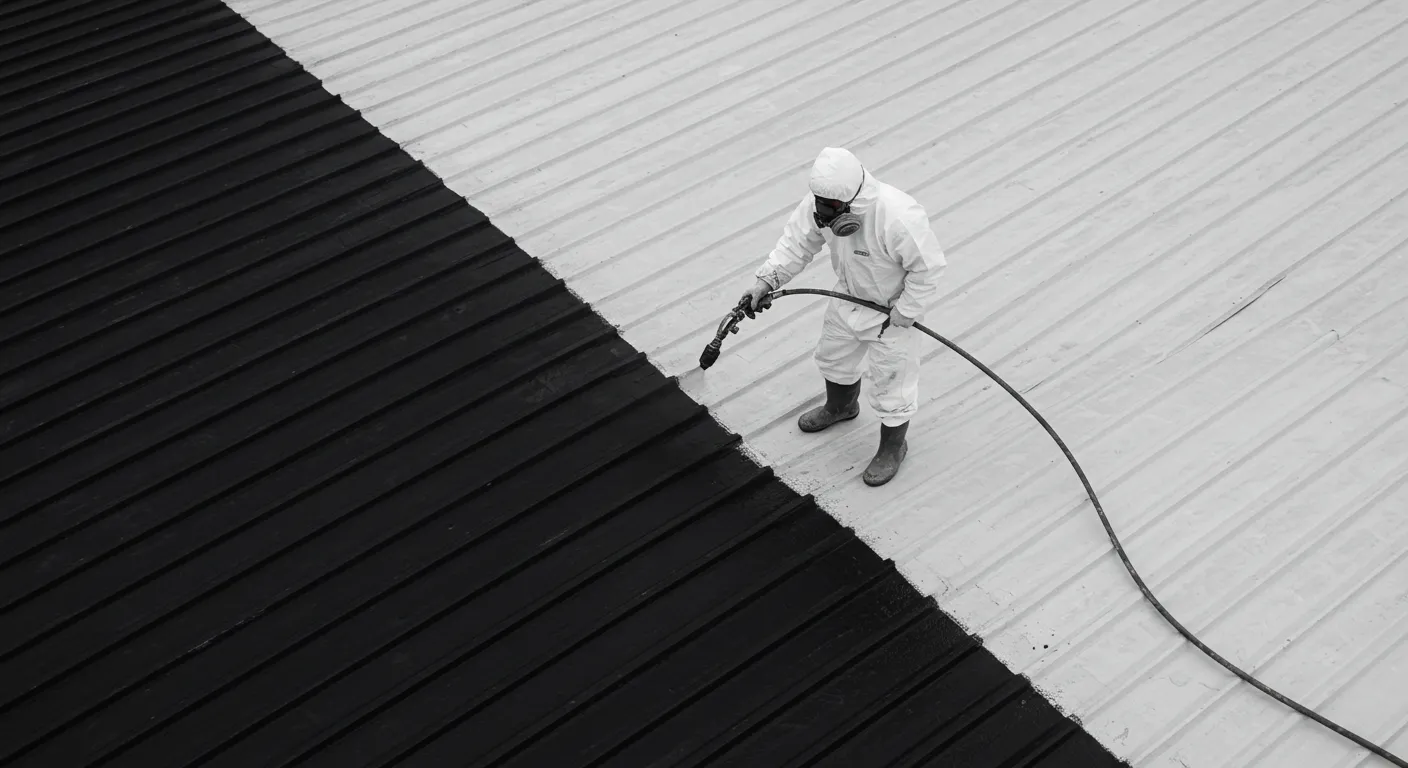When installed correctly, roof insulation can save homeowners anywhere from 15% to 40% on annual energy bills depending on your home’s current insulation, climate zone, and energy habits. Raleigh Excel Spray Foam Insulation specializes in energy-efficient spray foam solutions that dramatically reduce heating and cooling losses through your roof.
Whether you’re upgrading old insulation or building new, the return on investment (ROI) from quality roof insulation often pays off in just a few years. In this guide, we break down how insulation saves money, what factors affect savings, and what you should know before moving forward.
Why Roof Insulation Saves So Much Energy
The Roof: Your Home’s #1 Heat Escape Route
Your roof is exposed to direct sunlight in summer and harsh cold in winter. Without proper insulation, this is where the greatest heat transfer occurs. That means higher AC use in summer and heating loss in winter.
Spray Foam Insulation = Maximum Seal + High R-Value
Spray foam insulation doesn’t just resist heat it also creates an air seal, unlike traditional batts or blown-in materials. This dual action greatly reduces thermal bridging and air leakage.
How Much Can You Actually Save?
Savings vary, but here are some rough averages for a 2,000 sq. ft. home in North Carolina:
| Insulation Type | Average Monthly Savings | ROI Timeline | Energy Loss Reduction |
|---|---|---|---|
| No insulation → Spray foam | $150+ | 2-4 years | Up to 40% |
| Fiberglass → Spray foam | $75–$100 | 3-5 years | 25–30% |
| Blown-in cellulose → Spray foam | $50–$75 | 4–6 years | 15–25% |
Bonus Tip: The greater your current heat/AC use, the faster the insulation pays for itself.
Understanding R-Values and Performance Metrics
What Is an R-Value?
The R-value measures insulation’s resistance to heat flow the higher the number, the better. But installation quality and air sealing are equally important.
| Material | Typical R-Value (per inch) | Air Sealing? |
|---|---|---|
| Open-cell spray foam | 3.5–3.9 | Yes ✅ |
| Closed-cell spray foam | 6.0–7.0 | Yes ✅ |
| Fiberglass batts | 2.9–3.8 | No ❌ |
| Cellulose (blown-in) | 3.2–3.8 | No ❌ |
Things to Know Before Insulating Your Roof
1. Ventilation Matters
Proper attic ventilation prevents moisture buildup and prolongs roof lifespan. Spray foam often requires sealed attics, so ventilation must be adjusted accordingly.
2. Check for Rebates and Incentives
Federal tax credits and local utility programs may cover up to 30% of your project cost. These programs often prioritize spray foam and other high-efficiency materials.
Bonus Tip: Ask us how to bundle your insulation upgrade with HVAC efficiency upgrades for even greater savings.
3. Home Assessment is Key
Not all homes benefit equally. A professional evaluation helps identify your unique heat loss points and whether you’ll save more by insulating your roof, walls, or crawl space first.
Trending Discussions: What Homeowners Are Asking
- “Will spray foam make my attic too hot?” Not if installed properly with the right ventilation setup.
- “Can I DIY my roof insulation?” For small areas, maybe. For full-home energy optimization, professional spray foam installation is strongly recommended.
- “What’s better open-cell or closed-cell foam?” Depends on your goals. We recommend open-cell for most roof applications unless moisture resistance or structural reinforcement is needed.
Ready to Achieve Cost Savings?
Roof insulation is one of the smartest upgrades you can make to cut energy waste and lower utility costs especially with high-efficiency spray foam. Apply these insights now: Schedule your free insulation assessment with Raleigh Excel Spray Foam Insulation. Our team will evaluate your home’s energy profile and recommend the ideal solution for lasting savings.
Contact Us:
(919) 301-9435
[email protected]
Your Insulation Questions Answered by Raleigh Excel Spray Foam Insulation
How long does spray foam insulation last?
It can last 50+ years without sagging or degrading far longer than fiberglass or cellulose.
Does it improve home resale value?
Yes. Energy-efficient upgrades like insulation are often highlighted in real estate listings and can increase your home’s market appeal.
Is spray foam insulation safe?
Once cured, it is inert and safe. Our certified installers ensure proper ventilation during application for health and safety.
Can I insulate over existing materials?
In many cases, yes. However, to achieve maximum efficiency, removing old insulation may be necessary especially if it’s damaged or moldy.
How soon will I notice savings?
Most homeowners notice lower bills in the very next billing cycle after installation.




